
Podil: The Historical Heartbeat of Kyiv
Podil, one of Kyiv's oldest and most vibrant neighborhoods, is a perfect blend of historical charm and modern flair. This riverside district is the birthplace of Kyiv's commerce and craftsmanship, making it rich in both history and culture. Walking through Podil, you will encounter centuries-old churches, quaint streets, and bustling markets, all of which tell the story of Kyiv's past and present. From the iconic Kontraktova Square, which has been a hub of trade and social life for centuries, to the stunning St. Andrew's Church perched on the hill, Podil offers a multitude of attractions for history buffs and casual explorers alike. The neighborhood is also home to several museums, including the National Museum of the History of Ukraine, which provides a deep dive into the country’s rich heritage. Podil isn't just about history; it's also a thriving cultural hotspot. The area boasts a variety of cafes, restaurants, and bars where you can sample local cuisine and enjoy the lively atmosphere. The Andriyivskyy Descent, often referred to as Kyiv's Montmartre, is a must-visit for its artisanal shops and art galleries. Whether you're interested in architecture, history, or just soaking up the local vibe, Podil has something to offer every visitor.
Local tips in Podil
- Wear comfortable shoes to navigate the cobblestone streets and steep inclines.
- Visit Kontraktova Square early in the morning to avoid crowds and enjoy the peaceful atmosphere.
- Take the funicular for a scenic and convenient way to travel between Podil and the Upper Town.
- Don't miss the chance to try local Ukrainian dishes at one of the many traditional restaurants.
- Check out the local art galleries along Andriyivskyy Descent for unique souvenirs.
Podil: The Historical Heartbeat of Kyiv
Podil, one of Kyiv's oldest and most vibrant neighborhoods, is a perfect blend of historical charm and modern flair. This riverside district is the birthplace of Kyiv's commerce and craftsmanship, making it rich in both history and culture. Walking through Podil, you will encounter centuries-old churches, quaint streets, and bustling markets, all of which tell the story of Kyiv's past and present. From the iconic Kontraktova Square, which has been a hub of trade and social life for centuries, to the stunning St. Andrew's Church perched on the hill, Podil offers a multitude of attractions for history buffs and casual explorers alike. The neighborhood is also home to several museums, including the National Museum of the History of Ukraine, which provides a deep dive into the country’s rich heritage. Podil isn't just about history; it's also a thriving cultural hotspot. The area boasts a variety of cafes, restaurants, and bars where you can sample local cuisine and enjoy the lively atmosphere. The Andriyivskyy Descent, often referred to as Kyiv's Montmartre, is a must-visit for its artisanal shops and art galleries. Whether you're interested in architecture, history, or just soaking up the local vibe, Podil has something to offer every visitor.
Iconic landmarks you can’t miss
Golden Gate
Discover the Golden Gate in Kyiv, an architectural marvel and historical landmark that tells the story of Ukraine's rich past.
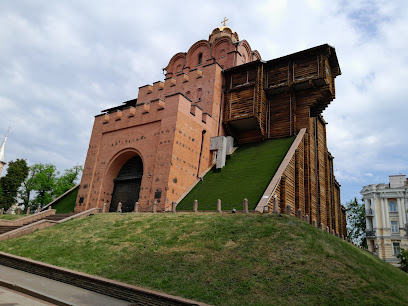
Kontraktova Square
Discover the vibrant culture and rich history of Kyiv at Kontraktova Square, a beautiful hub for tourists and locals alike.
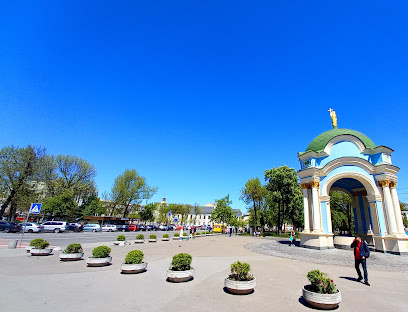
Kiev Pechersk Lavra
Explore the historic Kiev Pechersk Lavra, a UNESCO World Heritage Site filled with stunning architecture and rich cultural heritage in the heart of Kyiv.
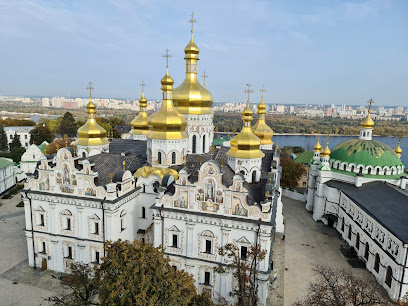
Ukrainian Motherland Monument
Discover the iconic Ukrainian Motherland Monument in Kyiv, a stunning tribute to the resilience of the Ukrainian people amidst a backdrop of rich history.
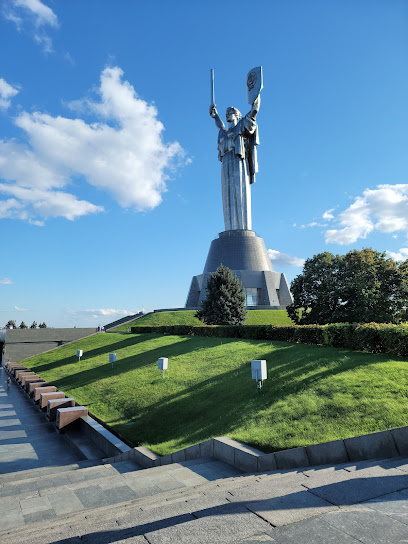
Kyiv Founders Monument
Discover the rich history of Kyiv at the Founders Monument, a stunning tribute to the city's legendary founders along the Dnipro River.
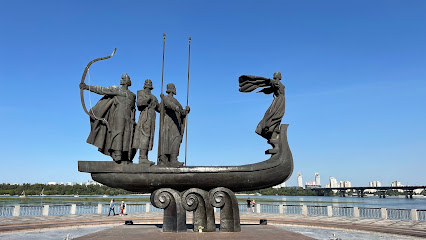
Gregory Skovoroda Monument
Explore the Gregory Skovoroda Monument in Kyiv, a symbol of Ukraine's rich philosophical heritage and a tranquil spot for reflection.
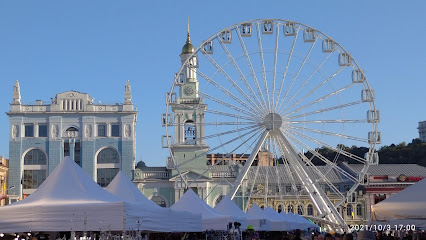
Volodymyr The Great Monument
Explore the rich history of Kyiv at the Volodymyr The Great Monument, a stunning tribute to the city’s founder with breathtaking views.
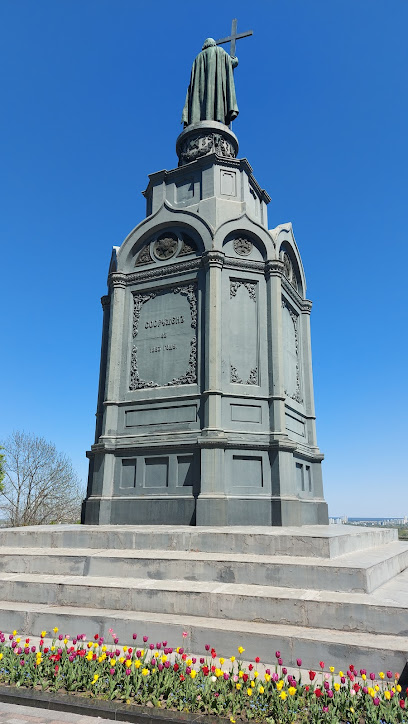
Poshtova Square
Explore the charm of Poshtova Square in Kyiv, where history meets modernity in a vibrant cultural hub filled with shops and eateries.
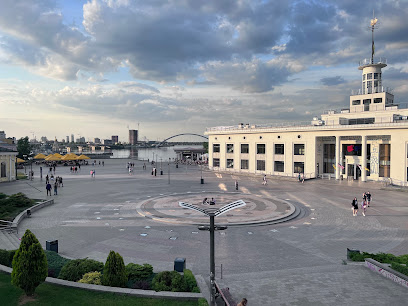
Monument Petra Sagaidachnogo
Explore the Monument Petra Sagaidachnogo in Kyiv, a stunning tribute to Ukraine's history and culture, surrounded by vibrant local life.
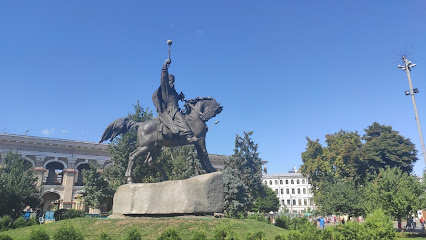
Museum of Charity (House of Peter the Great)
Explore the Museum of Charity in Kyiv, a historical landmark showcasing Ukraine's philanthropic heritage and the life of Peter the Great.
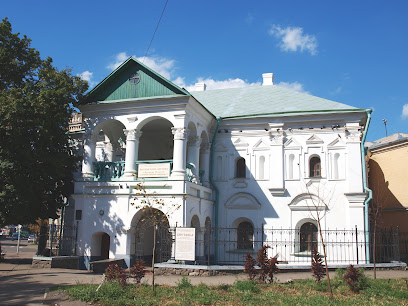
Unmissable attractions to see
National Museum of the History of Ukraine in the Second World War
Discover the poignant history of Ukraine's resilience during the Second World War at this remarkable museum in Kyiv, a must-visit for all history enthusiasts.
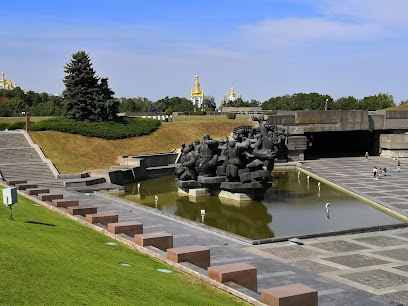
One-Street Museum
Explore the rich artistic heritage of Kyiv at the One-Street Museum, a cultural gem showcasing Ukraine's vibrant history and craftsmanship.
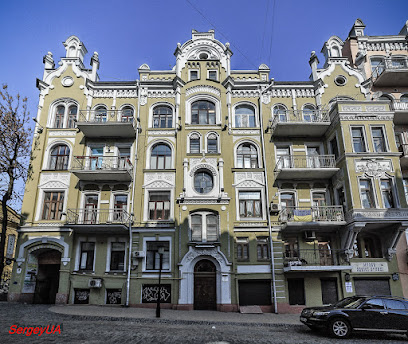
Monument Petra Sagaidachnogo
Discover the Monument to Petro Sagaidachny, a stunning historical landmark in Kyiv that celebrates Ukraine's rich maritime heritage and cultural pride.
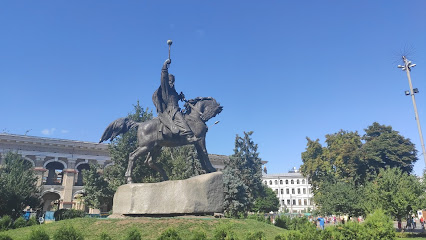
НоГГами спот
Discover the artistic allure and cultural richness of Nohgami Spot, a vibrant tourist attraction in the heart of Kyiv, Ukraine.
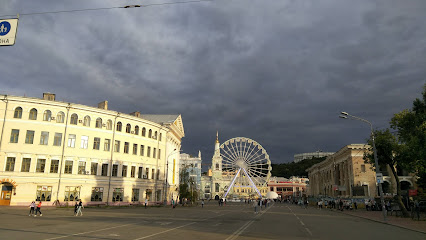
Essential places to dine
Puzata Hata
Experience authentic Ukrainian cuisine in a warm bistro setting at Puzata Hata in Kyiv.
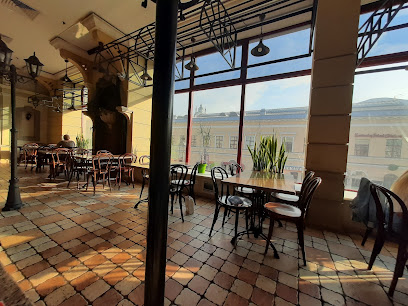
Mama Manana
Experience authentic Georgian cuisine at Mama Manana in Kyiv's charming Podil district - where flavor meets tradition.
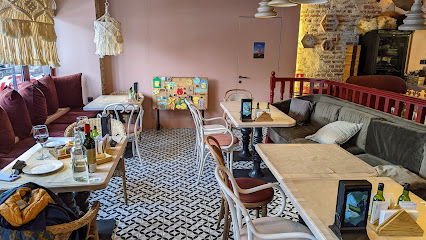
Chornomorka Podil
Discover Chornomorka Podil: A seafood gem in Kyiv offering fresh catches and vibrant coastal flavors.
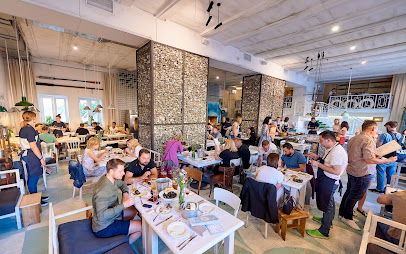
Hutorets na Dnipri
Discover the flavors of Ukraine at Hutorets na Dnipri – a riverside gem offering authentic dishes and breathtaking views in Kyiv.
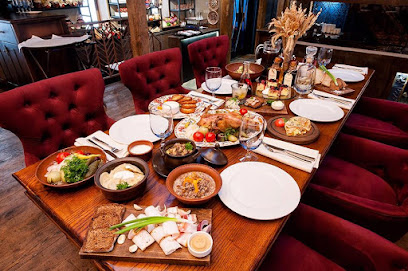
Tisto, Syr I Titka Bella
Experience authentic Italian cuisine at Tisto, Syr I Titka Bella in Kyiv's Podil district - where flavors meet tradition in a cozy setting.
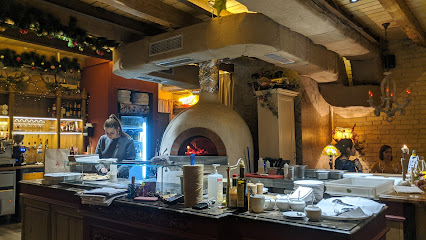
Vero Vero
Discover the essence of Italy at Vero Vero in Kyiv - where authentic flavors meet warm hospitality.
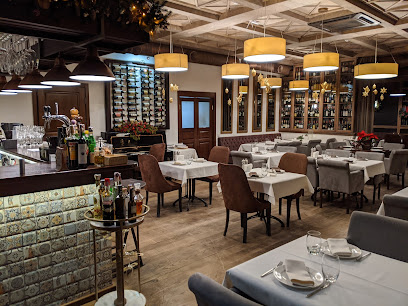
Hum:Hum
Experience the vibrant culinary scene at Hum:Hum in Kyiv – where local flavors meet international flair in a cozy setting.
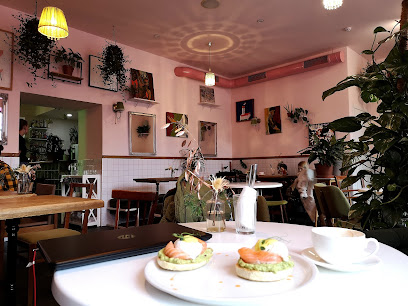
Podil East India Company
Experience authentic Indian flavors and innovative cocktails at Podil East India Company in Kyiv's lively Podil district.
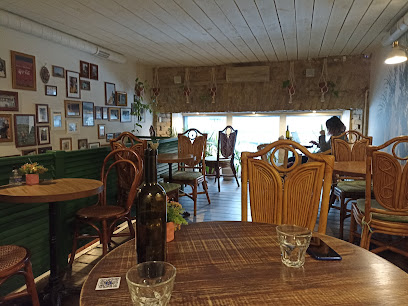
Casa Nori
Discover the essence of Italy at Casa Nori in Kyiv – where authentic flavors meet exquisite ambiance for an unforgettable dining experience.
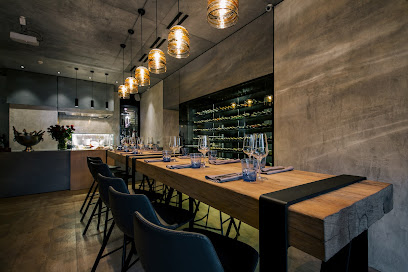
Once Upon a Time
Discover Kyiv's Once Upon a Time: A whimsical restaurant offering delightful Ukrainian cuisine in an enchanting setting.
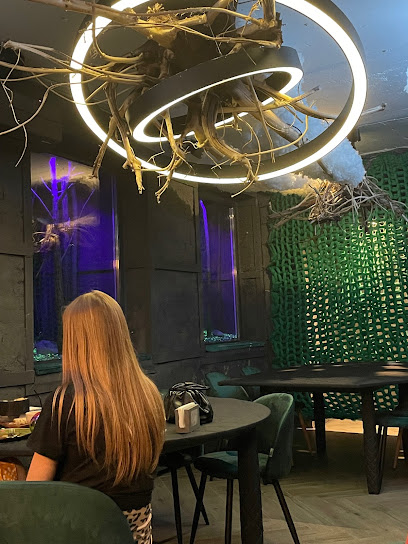
Markets, malls and hidden boutiques
Ocean Plaza
Discover Ocean Plaza in Kyiv: a shopping haven with over 300 stores, diverse dining options, and entertainment for all ages.
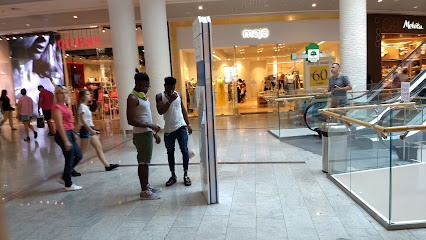
Ukraina Shopping Mall
Discover the heart of Kyiv's retail scene at Ukraina Shopping Mall, offering a diverse shopping experience with dining and entertainment.
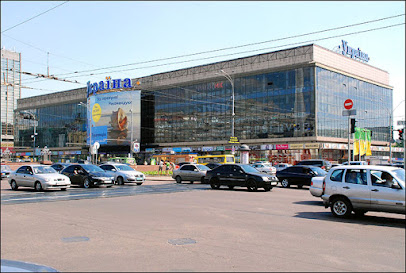
TSUM
Discover luxury shopping at TSUM Kyiv, where high-end fashion meets gourmet delights in an iconic department store.
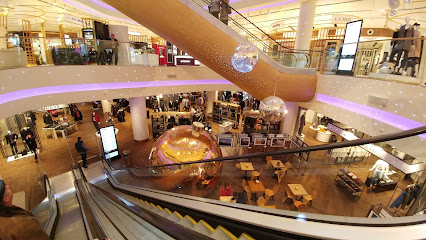
Natur Boutique - Organic shop of products
Experience the best of organic living at Natur Boutique, Kyiv's premier destination for organic foods and natural beauty products.
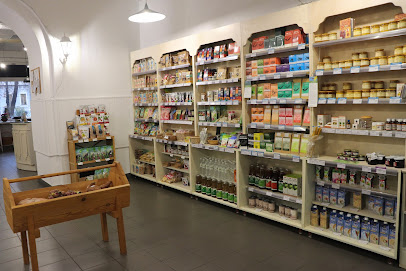
Dobro store - Магазин подарунків
Explore Kyiv's Dobro Store for a unique selection of handcrafted gifts and authentic Ukrainian souvenirs that embody the spirit of local craftsmanship.
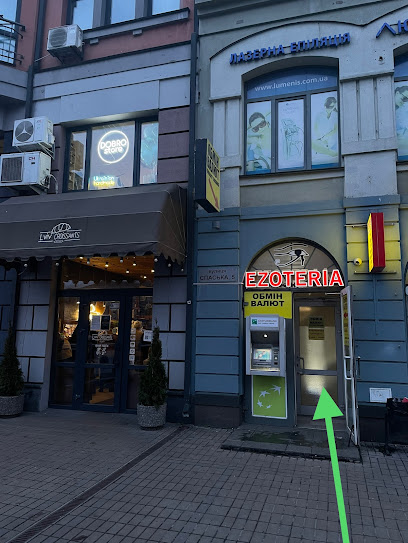
Happy Shopping
Explore Kyiv's fashion scene at Happy Shopping, where stylish clothing for men and women meets exceptional service in a trendy setting.
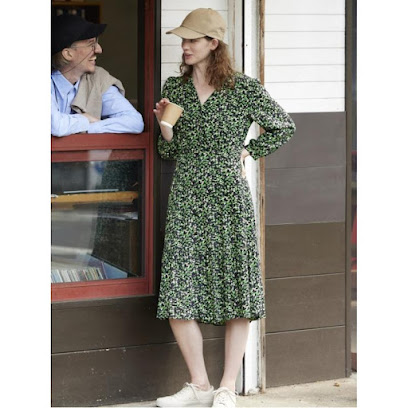
KMA Gift shop
Discover unique Ukrainian souvenirs at KMA Gift Shop in Kyiv's historic Kontraktova Square, where culture and craftsmanship unite.
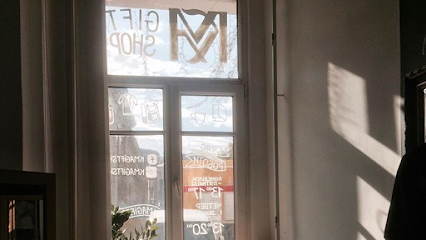
Mandala Art Shop
Explore Mandala Art Shop in Kyiv for unique gifts and local craftsmanship that capture the spirit of Ukraine in every handcrafted piece.
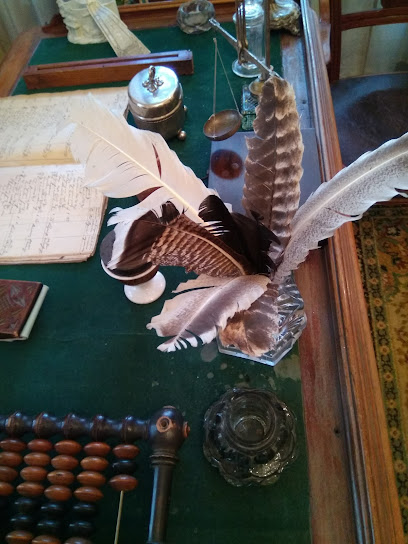
Curandero Store
Discover the charm of Kyiv at Curandero Store, where unique gifts meet the art of tea in a cozy atmosphere.

Купить итальянские джинсы харьков 2019
Explore the heart of Kyiv and discover exquisite Italian jeans, blending fashion with local charm in the Podil's'kyi district.
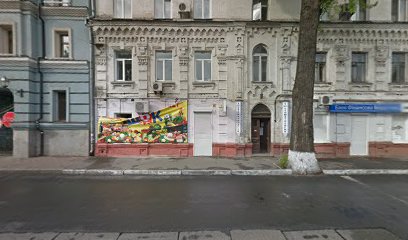
Essential bars & hidden hideouts
Pink Freud Kyiv
Discover Kyiv's nightlife at Pink Freud, a vibrant bar offering a unique blend of local culture and eclectic drinks in the heart of Podil.
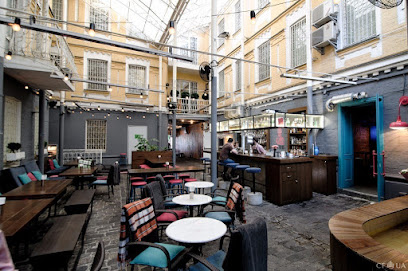
AMIGOS BAR
Discover AMIGOS BAR in Kyiv: a lively bar with a welcoming ambiance, perfect for enjoying cocktails and connecting with locals and travelers.
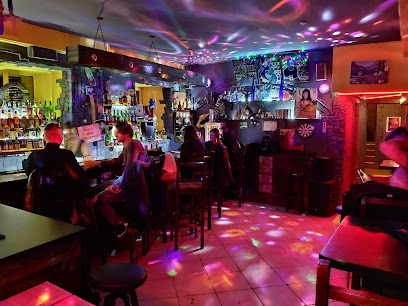
Win Bar
Discover the exquisite flavors of wine and barbecue at Win Bar, a must-visit wine bar in the heart of Kyiv's historic Podil district.
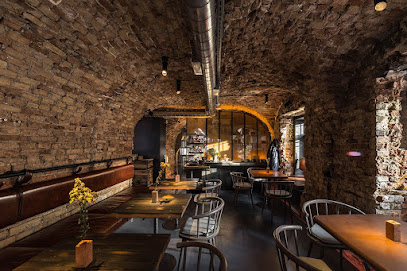
Wood You Like Bar
Discover an unforgettable cocktail experience at Wood You Like Bar, the heart of Kyiv's vibrant nightlife scene, serving creative drinks in a cozy setting.
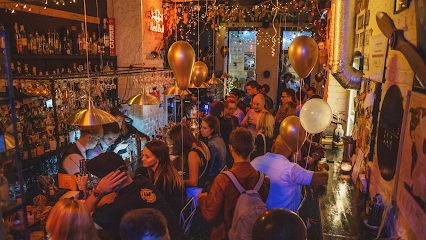
PR Bar
Discover the vibrant atmosphere and delightful drinks at PR Bar, a top bar and cafe destination in Kyiv.
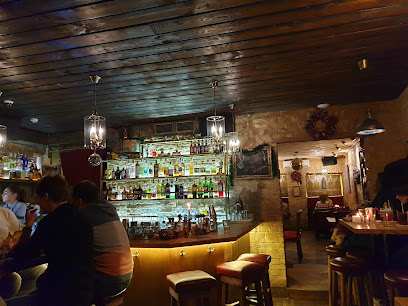
Drunken Monkey
Experience the vibrant nightlife of Kyiv at Drunken Monkey, where great drinks and a lively atmosphere await every visitor.
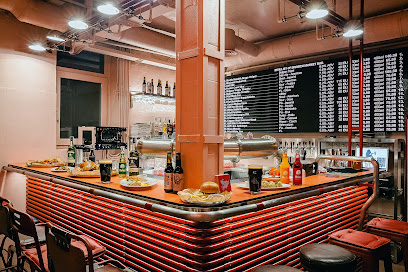
Beer on line
Discover the lively spirit of Kyiv at Beer on Line, where a vast selection of beers and a vibrant atmosphere await every visitor.
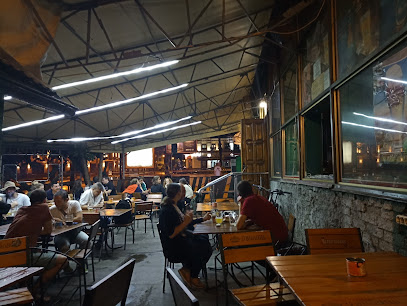
Grails Bar
Discover Kyiv's nightlife at Grails Bar, where vibrant atmosphere, local brews, and live music unite for an unforgettable experience.
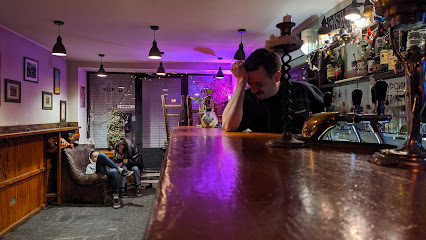
Gonzo Bar
Discover the vibrant nightlife at Gonzo Bar in Kyiv, where craft beers and cocktails come together in a lively atmosphere.
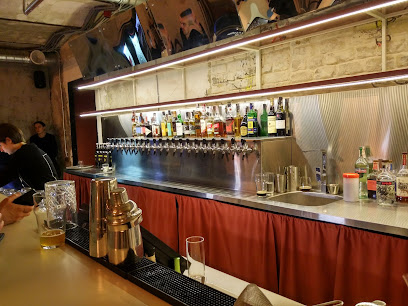
Platz bar Kyiv
Discover the vibrant nightlife of Kyiv at Platz Bar, where exquisite cocktails meet a lively atmosphere for an unforgettable experience.
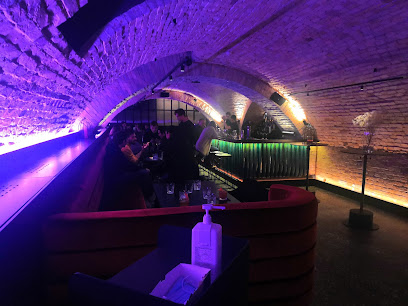
Local Phrases
-
- HelloПривіт
[Privit] - GoodbyeДо побачення
[Do pobachennya] - YesТак
[Tak] - NoНі
[Ni] - Please/You're welcomeБудь ласка
[Bud laska] - Thank youДякую
[Dyakuyu] - Excuse me/SorryВибачте
[Vybachte] - How are you?Як справи?
[Yak spravy?] - Fine. And you?Добре. А ви?
[Dobre. A vy?] - Do you speak English?Ви говорите англійською?
[Vy hovoryte anhliysʹkoyu?] - I don't understandЯ не розумію
[Ya ne rozumiyu]
- HelloПривіт
-
- I'd like to see the menu, pleaseЯ б хотів подивитися меню, будь ласка
[Ya b hotiv podyvytysya menyoo, bud laska] - I don't eat meatЯ не їм м'ясо
[Ya ne yim m'yaso] - Cheers!Будьмо!
[Budʹmo!] - I would like to pay, pleaseЯ б хотів оплатити, будь ласка
[Ya b hotiv oplatyty, bud laska]
- I'd like to see the menu, pleaseЯ б хотів подивитися меню, будь ласка
-
- Help!Допоможіть!
[Dopomozhitʹ!] - Go away!Йдіть геть!
[Yditʹ hetʹ!] - Call the Police!Викличте поліцію!
[Vyklitchte politsiyu!] - Call a doctor!Викличте лікаря!
[Vyklitchte likarya!] - I'm lostЯ загубився
[Ya zahubyvsya] - I'm illЯ хворий
[Ya khvoryy]
- Help!Допоможіть!
-
- I'd like to buy...Я б хотів купити...
[Ya b hotiv kupyty...] - I'm just lookingЯ просто дивлюся
[Ya prosto dyvlyusya] - How much is it?Скільки це коштує?
[Skilʹky tse koshtue?] - That's too expensiveЦе занадто дорого
[Tse zanadto doroho] - Can you lower the price?Чи можете ви знизити ціну?
[Chy mozhete vy znyzyty tsinu?]
- I'd like to buy...Я б хотів купити...
-
- What time is it?Котра година?
[Kotra hodyna?] - It's one o'clockОдинадцята
[Odynadtsyata] - Half past (10)Пів на одинадцяту
[Piv na odynadtsyatu] - MorningРанок
[Ranok] - AfternoonДень
[Denʹ] - EveningВечір
[Vechir] - YesterdayВчора
[Vchora] - TodayСьогодні
[Sʹohodni] - TomorrowЗавтра
[Zavtra] - 1один
[odyn] - 2два
[dva] - 3три
[try] - 4чотири
[chotyry] - 5п'ять
[pyatʹ] - 6шість
[shistʹ] - 7сім
[sim] - 8вісім
[visim] - 9дев'ять
[devʹyatʹ] - 10десять
[desyatʹ]
- What time is it?Котра година?
-
- Where's a/the...?Де є...
[De ye...] - What's the address?Яка адреса?
[Yaka adresa?] - Can you show me (on the map)?Чи можете ви показати мені (на мапі)?
[Chy mozhete vy pokazaty meni (na mapi)?] - When's the next (bus)?Коли наступний (автобус)?
[Koly nastupnyy (avtobus)?] - A ticket (to ....)Квиток (до ....)
[Kvytok (do ....)]
- Where's a/the...?Де є...
History of Podil
-
Podil, one of the oldest neighborhoods of Kyiv, traces its origins back to the 9th century, making it a cradle of the city's history. Positioned at the confluence of the Dnipro River and the historical trade routes, Podil was a bustling marketplace that facilitated commerce and cultural exchange. Its strategic location was vital for the early development of Kyiv as a significant trading hub.
-
During the 10th to 13th centuries, Podil flourished as a center for trade and commerce within the Kievan Rus. Merchants from various regions converged here, contributing to a vibrant economy. The neighborhood was home to numerous shops, craft workshops, and trading houses that bolstered the wealth of Kyiv and attracted traders from neighboring lands.
-
In the 18th century, Podil emerged as an intellectual hub, with the establishment of educational institutions and cultural societies. The neighborhood saw the construction of notable buildings, including the Baroque-style St. Andrew's Church and the Kyiv-Mohyla Academy, which became one of the first higher education institutions in Eastern Europe. This period marked a significant advancement in education, literature, and the arts.
-
Under the Russian Empire in the 19th century, Podil underwent significant urban development. The neighborhood became increasingly industrialized, with the establishment of factories and warehouses. However, this period also saw a decline in the traditional crafts and trades that had characterized Podil for centuries, as the focus shifted towards industrial production.
-
The Soviet period brought further changes to Podil, with extensive reconstruction and modernization efforts. Traditional architecture was often replaced with Soviet-style buildings, but efforts were also made to preserve the neighborhood's historical significance. Podil retained its role as a commercial center, and many of its streets were filled with shops, markets, and cultural institutions.
-
Following Ukraine's independence in 1991, Podil experienced a revival of its cultural heritage. The neighborhood has become a focal point for artists, musicians, and cultural events. The renovation of historical buildings and the establishment of galleries, cafes, and craft markets have helped to restore Podil's identity as a vibrant cultural district, attracting both locals and tourists.
Podil Essentials
-
Podil is easily accessible from various neighborhoods in Kyiv. The most convenient way to reach Podil is via the metro; the Kontraktova Ploshcha station is centrally located in the area. From the central train station (Kyiv-Pasazhyrskyi), take the metro on the red line towards Lisova and transfer at Maidan Nezalezhnosti to the blue line, heading towards Obolon. Alternatively, taxis and rideshare services are readily available throughout Kyiv, offering a direct route to Podil.
-
Podil is a compact neighborhood, making it ideal for exploring on foot. The area is well connected by public transportation, including buses, trams, and the metro. Bicycles are also popular, and several rental services are available. For a more local experience, consider using a shared bicycle service. If traveling further afield, marshrutkas (minibuses) are a budget-friendly option, connecting you to other parts of Kyiv.
-
Podil is generally safe for tourists, but as with any urban area, it's important to remain vigilant. Avoid poorly lit streets at night and keep personal belongings secure, especially in crowded areas. The district near the Kontraktova Ploshcha may experience petty crimes, so exercise caution here. Always be aware of your surroundings and trust your instincts when something feels off.
-
In case of an emergency, dial 112 for police, medical assistance, or fire services. The nearest hospital is located in the nearby neighborhood of Shevchenkivskyi. It is advisable to have travel insurance that covers health emergencies. For minor medical issues, local pharmacies are available, and many are open late.
-
Fashion: Do wear comfortable clothing suitable for walking; however, avoid overly casual attire when dining out. Religion: Do respect local customs; when visiting churches, dress modestly and cover your shoulders and knees. Public Transport: Do give up your seat for the elderly and pregnant women; don't engage in loud conversations or consume food and drink. Greetings: Do greet with a firm handshake; don't assume familiarity too quickly. Eating & Drinking: Do try local dishes at traditional restaurants; don't refuse an offer of food or drink, as it may be considered impolite.
-
To experience Podil like a local, visit the bustling Andriyivskyy Descent, filled with street vendors and artists. Check out the weekend markets for fresh produce and handmade crafts. Engage with locals at cafes and bars, as they are often eager to share stories about the neighborhood. Don't miss the opportunity to explore the historical architecture, including the National Museum of the History of Ukraine and the impressive St. Andrew's Church. For a unique perspective, take a boat tour along the Dnipro River.
Nearby Cities to Podil
-
Things To Do in Chernihiv
-
Things To Do in Cherkasy
-
Things To Do in Vinnytsia
-
Things To Do in Kropyvnytskyi
-
Things To Do in Kremenchuk
-
Things To Do in Khmelnytskyi
-
Things To Do in Poltava
-
Things To Do in Sumy
-
Things To Do in Kryvyi Rih
-
Things To Do in Orhei
-
Things To Do in Ternopil
-
Things To Do in Lutsk
-
Things To Do in Chișinău
-
Things To Do in Tiraspol
-
Things To Do in Chernivtsi












